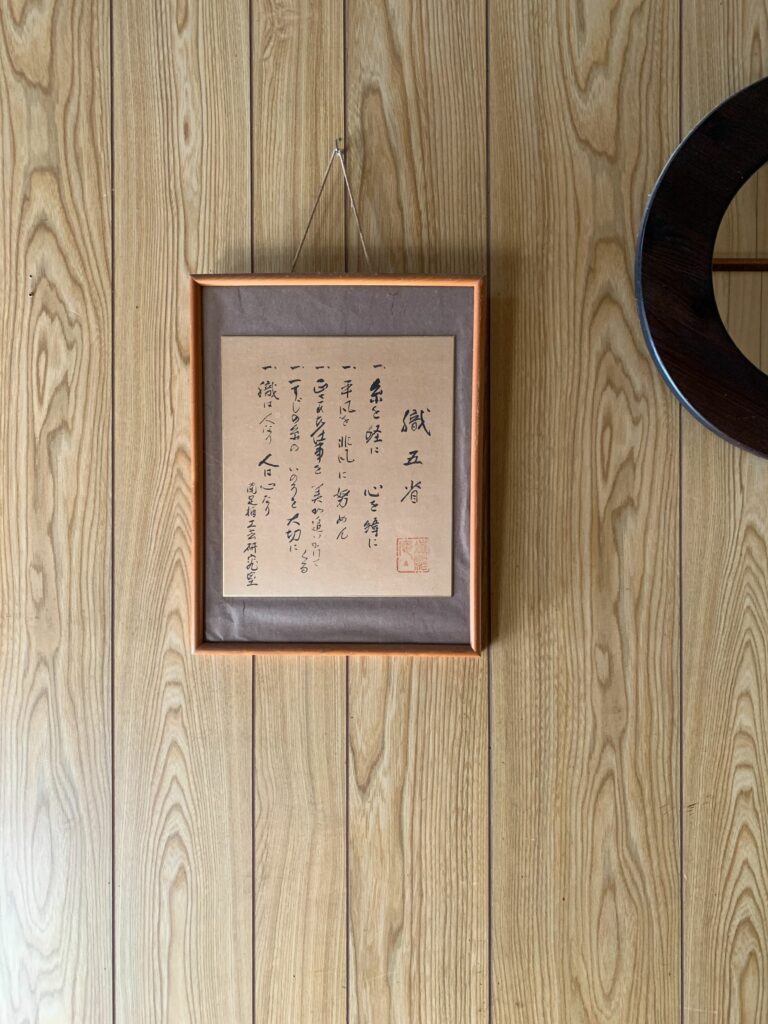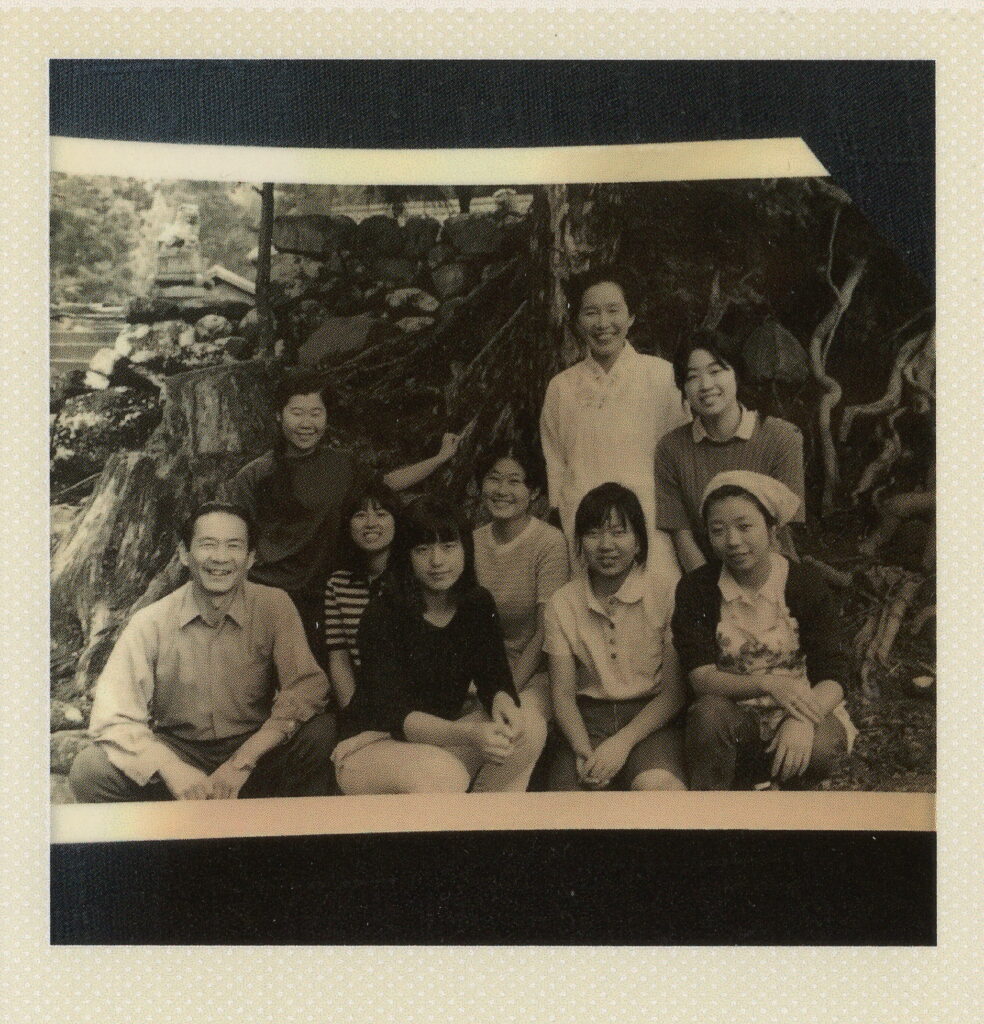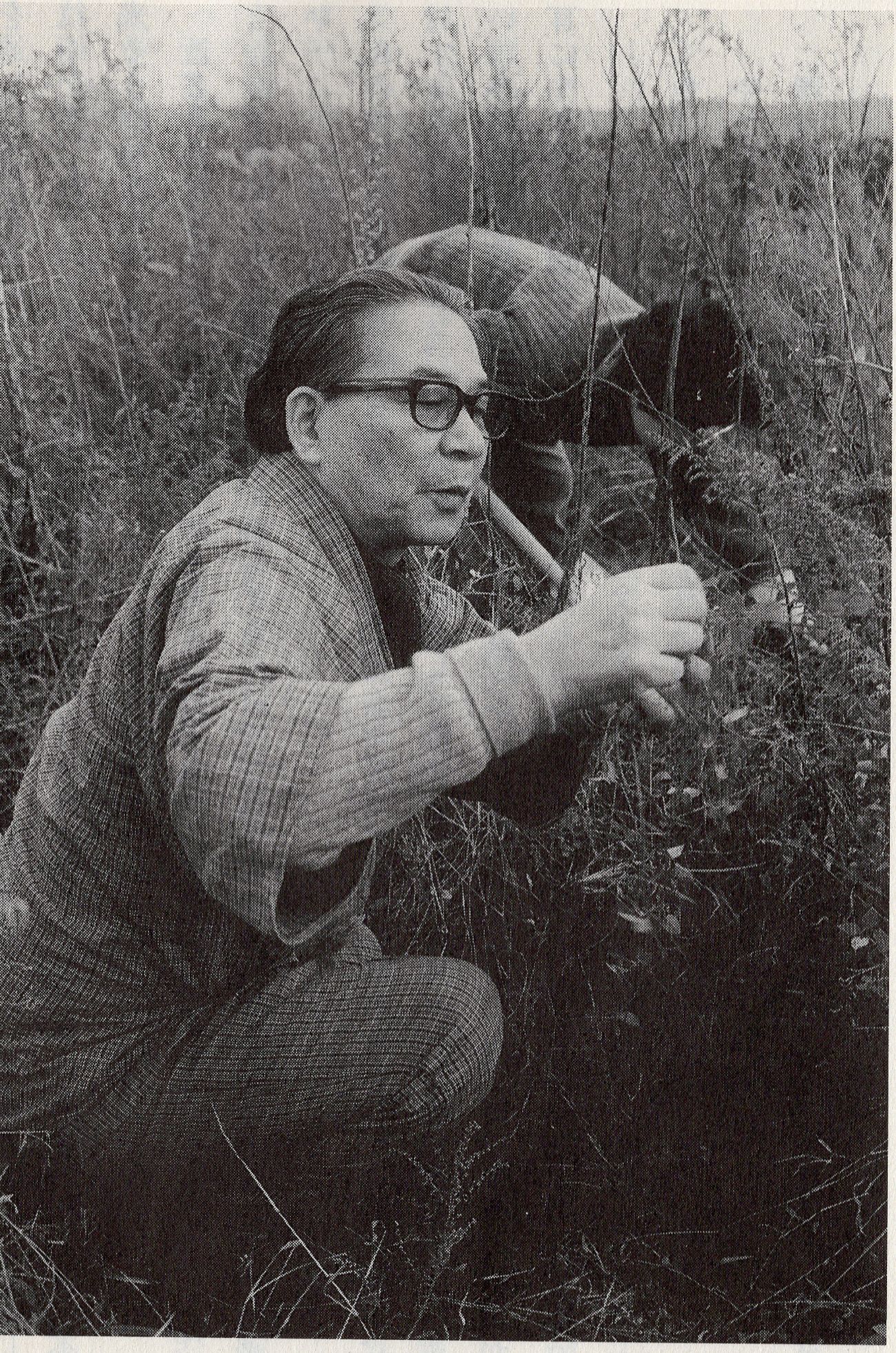We praise the extraordinary; what’s beyond our mundane everyday. But in that strive for the extraordinary, do we feel exhausted by the perpetual looking-up, a.k.a. not-enough-ness? Do we all have to aim for a big, grand vision?
On the wall of my living room hangs “Five Reflections for Weavers” calligraphed by my grandfather, Rikizo Munehiro. He received the honour of “Living National Treasure” in the 80s for his ikat and stripe pattern weaving technique with tsumugi-pongee silk.
1, Place your warps vertically, your mind horizontally
1, Do the ordinary extraordinarily
1, Beauty chases after genuine work
1, Be mindful of the life of one thread
1, Weaving comes down to the weaver, the weaver to the heart

He used to calligraph these five reflections for his trainees when they graduated from his workshop, much like a scroll of certificates handed over at a graduation ceremony. I have seen a few of these given to his former apprentices, and each one is slightly different to others. He must have made adjustments according to their personality.
The holder of Intangible Important Cultural Property – many recognise and remember him for the title he received. However, to me, that is a mere byproduct of what he poured his passion towards… which was the development of each individual.
In his early twenties, he led a commune of youth with the aim of personal development through agriculture. He saw that in order for a person to grow intellectually, emotionally, and physically, sitting in front of a desk was not enough. Studying, cleaning, and farming were all equally important practices and parts of life. Based on that belief, he tried to cultivate a holistic environment.
When World War II ended, he quickly had to find a place for his peers coming back from Manchuria, China. Food to be shared, houses to sleep in, space to build the houses and grow crops on… all had to be realised quickly. He was leading a community to cultivate the land once again.
Weaving was one of many means he tried to support the village financially. Making pomade from caster oil was another: I heard it was successful at one point.
In the end, he decided to focus on weaving for three reasons
- it’s timeless
- it will never be overproduced
- it will never create a reason to fight over
It didn’t have to be weaving, but it ended up being so. My guess is that something about weaving resonated with his lifetime passion.
Once the direction was set, his innate curiosity laser-focused on bettering techniques through thousands of trials and errors, which later led to the title he received.
In that pursuit of ideal weaving, his intention remained the same.
“There is nothing more rewarding than to see my students’ technical advancement as well as spiritual growth,” he said. His apprentices lived together for a minimum of three years: from cooking and sharing meals to cleaning and farming – all were part of their daily work, equally as important as weaving.

Out of the five reflections, my favourite is the second one, “Do the ordinary extraordinarily.” He went far by doing the ordinary extraordinarily. From waking up early in the morning, cleaning the space, and cultivating the land, to watching the sun goes down.
“We cannot create anything better than what we are.” is another saying of his. “I see my students, and it’s clear that those who live following their own principles create good works. If one cannot lead an honest life, then there is no way s/he can get closer to the essence of weaving.”
I offer incense, water and prayer to his alter every morning. He reminds me how to face the day.

0 Comments